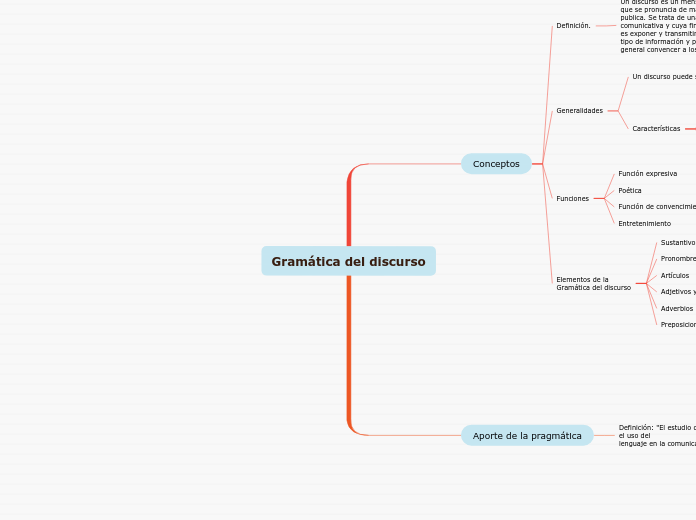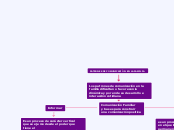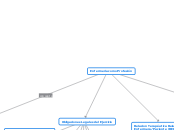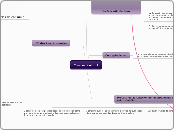Gramática del discurso
To name your story, you have to think about the overall message and what you want your audience to understand from the story. Also, make it relevant and easy to remember.
Aporte de la pragmática
The middle of the story is where you add layers of complications that will lead to the end. Reveal more about the character's journey. Did their personality go through changes? How did they overcome the challenges? And as you build up the story’s central conflict, make it more personal to that character. Also, from the middle act, you have to lead into the final act.
Definición: "El estudio de los principios que regulan el uso del
lenguaje en la comunicación
Each story has a main character and that character usually needs to solve a problem or challenge. The character's challenge is the one that creates tension throughout the story.
Ventajas
Type in any other challenges which other characters in the story need to face.
Supera otros enfoques y
aporta una nueva luz sobre la que observar los fenómenos.
No desprecia ningún enfoque
por ser anglosajón o europeo, sino que los integra todos e
intenta buscar una explicación para hechos pragmáticos
concretos.
La pragmática como perspectiva integra la pragmática como
componente.
Perspectivas
In most stories, there are 3 challenges. The number 3 is a mystical number symbolizing completeness. Try to come up with interesting challenges with which your character needs to struggle.
See a few examples below:
- turns into a werewolf at night
- is sent back in time
Explica hechos lingüísticos en toda
su complejidad cognitiva, social y cultural.
Supone superar las visiones
reduccionistas de la pragmática como componente
Observa el resto de los fenomenos
Conceptos
In the beginning of the story (or the exposition), you will need to introduce the setting and characters. You might also want to introduce the main conflict. This part of the story is important because it gives the reader necessary background information and maybe even a first insight into a character’s personality.
Elementos de la
Gramática del discurso
Preposiciones
Adverbios
Adjetivos y verbos
Artículos
Pronombre
Sustantivo o nombre
Funciones
Entretenimiento
Función de convencimiento
Poética
Función expresiva
Generalidades
The setting (time & place) of a story can change throughout the plot.
Características
The time of the story can also change. It can describe the event of a single day or can include an entire year's plot. Anyway, don't forget to mention it.
Multi contenido
estructurado
verificable
preciso
Un discurso puede ser
Your story can take place wherever your imagination will take you to.
For example: in an elevator, in an enchanted forest, etc. Don't forget to give details of the environment each time the setting changes, otherwise, the story can be confusing. Also, mention the seasons as each of them has unique weather and events.
Indirecto
Directo
Definición.
Characters are essential to a good story. Usually, the protagonist(s) is/are the most affected by the plot. Introduce a character by focusing on their actions, interests, and occupation, as the physical appearance doesn't make a difference in most cases.
Un discurso es un mensaje
que se pronuncia de manera
publica. Se trata de una acción
comunicativa y cuya finalidad
es exponer y transmitir algún
tipo de información y por lo
general convencer a los oyentes
Type in the name of your character.
Escrito
What is your character's main goal?
fight Evilfind lovedefeat his/her enemyrule the worldmake friendstime travelmake an awesome discoveryOther
Oral
Which traits best describe the character's personality? Choose more if necessary:
introvertedloyalkindindependentquick-thinkingadventuresomeidealisticsweet-naturedcalmrisk-takercreativewittystrictfussyweirdclumsyharshaggressivecarelessclingingcowardlycrueldeceitfulimpulsiveOther
Tipos
Choose the type of your chacter:
Protagonist (main character)Antagonist (main character's opponent)Flat (stereotypical character)Round (his/ her personality develops throughout the story)Static (doesn't evolve as a person throughout the story)Dynamic (dramatical change in personality)Confidant (the main character trusts him/ her)Foil (contrasting character who enhances the personality of another character)Other










